One of the LGBTQ+ sporting highlights of 2023 was TRUK United’s double header against Dulwich Hamlet.
A year after the world’s first football team made up of trans women ran out in TRUK colours, a trans men’s team joined them – the first in Europe.
Among TRUK’s number are people from all kinds of different backgrounds, and all corners of the UK. One that has caught the eye, though, has been Emily.
Emily is the club’s youngest player, having taken to the pitch at just 13 years old when she made her debut back in 2022.
Now 15, things have not always been easy for the teenager. A recurring idea is that social progress will come with generational change, but Emily was bullied to the extent that she was pulled out of mainstream education and home-schooled instead.
It would have been easy to question whether socially transitioning was worth the hassle – but instead those experiences have only fuelled her desire to advocate for change.
“I was three when I realised I was trans,” Emily recalled.
“I can’t quite remember exactly what it was, but from what I was told as I was growing up I always went to look at toys for little girls to try and get dolls.
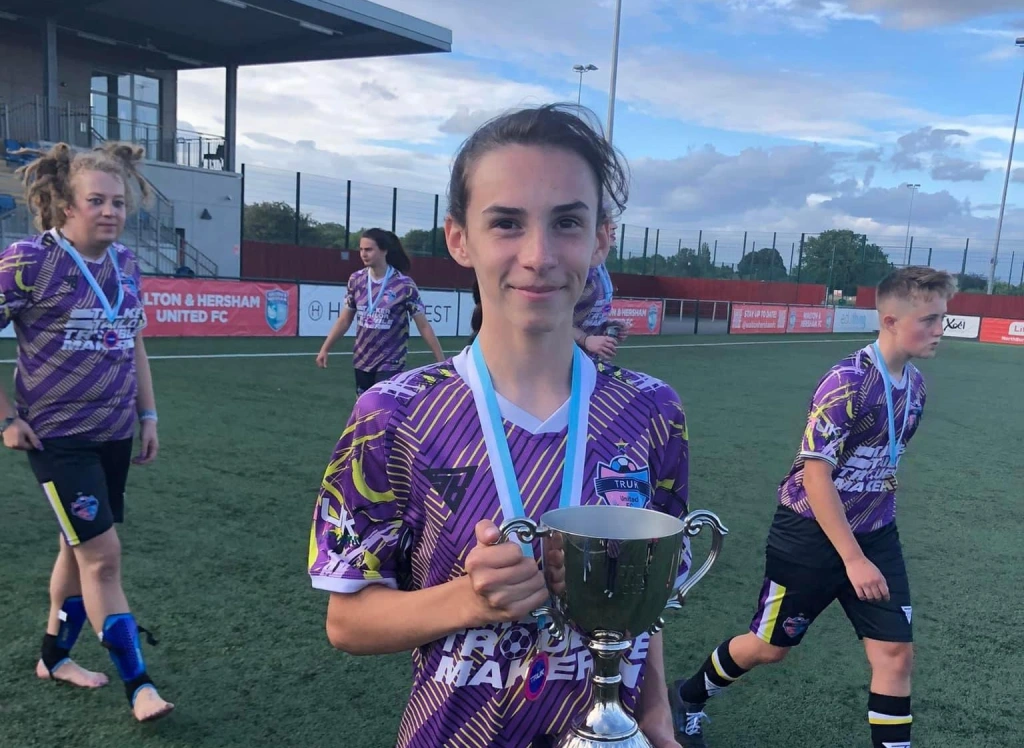
“I always used to say that I identified as a little girl, and eventually my parents realised that it wasn’t a little phase. They got into contact with Mermaids I think, and I started to go to those meetings once a month.
“In all honesty, the first month or so was difficult because I had really bad problems with trying to communicate with new people. I still do, but I can get on with it, and it’s not as big of a deal as it used to be.
“Eventually it got a lot better. Of course later on down the road, things went downhill, but when I was little everything went smoothly.
“Personally, I think the younger generation can be more accepting, but I think the right people need to be educated. If they could see the life of a trans person, or any LGBTQ+ person, for a week or two, they would understand that most people just go about their way.
“There are times when people say they identify as things just to take the mick out of the LGBTQ+ community, but I think that if the right people were educated and had a perspective on it, it would be useful.
“At the end of the day, we’re just people. I’ve got pets, a family, I can go around and play sports – and I don’t know why they’re trying to stop trans people playing sport.
“That’s a huge deal, because if the roles were reversed and we were trying to remove straight, cisgender people from sports they would be fighting for it as well.
“They don’t think about if the roles were reversed, because something like that will probably never happen, and I think they look at it like they don’t want to give it a chance to happen. That would never happen, because we just want to have the same rights that any other person would have.”
In sport, Emily’s obsession has always been football.
From an early age, she would gravitate towards footballs when out shopping and play in the aisles. When matches were on TV, she would watch, and passion for the sport grew.

Recognising that she was trans from such an early age practically ruled out the possibility of joining a team. That was why TRUK was so impactful.
“I always wanted to play for a team,” she said.
“I did join one, but I never got to play any matches. The manager was really nice, but before matches even started he was fired, and the whole season was cancelled for that team. I couldn’t really find anywhere else to go that was nearby and had a good manager.
“I went along to the very first TRUK match against Dulwich Hamlet. I did the commentary for the second half, because I was too young to play. We lost, but it was really nice to have somewhere to go to play the sport I like most.
“I have to put a good word in about the manager of TRUK, Lucy Clark. She’s the reason I play for the club, and she’s the reason I’ve had most of my good days. Whenever we go to their house for the matches, we always have a laugh and a good time, and if we’re there on the day the In Conversation show on Trans Radio is on, we like to jump in.
“I have kind of always wanted to grow up to be just like her, and I want to stay with TRUK for as long as I can.
“If I ever get an opportunity to go higher up in football, I would always want to keep my position at TRUK because that team has brought me to where I am now. If something came up, I would love to take it, but I would turn it down if it meant leaving TRUK.

“When I made my debut, I just wanted to score. I was really little and it was my first match, so they kind of let me score.
“I knew they were doing it, so I took the advantage. Why not? I haven’t scored in two years now, which has been terrible.
“TRUK has been one of the biggest things in my life recently. Without it during the time I started homeschooling, I don’t really know where I would be.
“I got a lot of attention because I was one of the little ones there, and I still do because I’m the youngest on the team, but I’m able to be treated as a person instead of an object.”
Having a spotlight shone on you at such a young age could be a lot of pressure.
Media interest was rife in Emily’s story, but she has also learned to be wary of the biases that some outlets may have.
“I kind of want to do as much as possible to show that I’m all in for trans rights all across the world,” she stressed.
“I don’t want it to be something that just a few countries have, I want it to be as big as it can get worldwide.
“I know a lot of religions don’t agree with that, and you can’t just change people’s religions. Some people will accept it, but others will only see what their religions say. With Christianity and the Bible, you get a lot of people who are trying to say that LGBTQ+ people are bad and asking people to let God accept their sins.
“For me, it depends on the situation that comes along with the attention. In some interviews I do, I have to watch what I’m saying because some people will twist my words. It all depends on what I’m talking about.

“Talking about bullying in school, I will be as honest as possible and tell it how it was. If it’s a more specific topic, I will watch what I say because different news companies and presenters will twist my words a little bit.
“One thing that I do remember is that the Daily Mail came to our door, and we said no to the interview – and they went and wrote one anyway.
“They just made up what they wanted to write. They said they wanted to talk about one thing, and the story ended up being completely different, and none of it was even true.”
It would be easy to say that all Emily wants to do is play football, but changes over the last few years to restrict trans women’s access to sport have made that extremely difficult.
That situation doesn’t look like changing any time soon, so for now all trans women can do is hope that progress is made over the coming years.
For someone in Emily’s position, in theory with a lifetime of sport still ahead of her, there are certain measures that she would need to see regardless to feel welcome.
“I genuinely think it just depends on the team, the players and the manager, the club owner,” Emily reasoned.
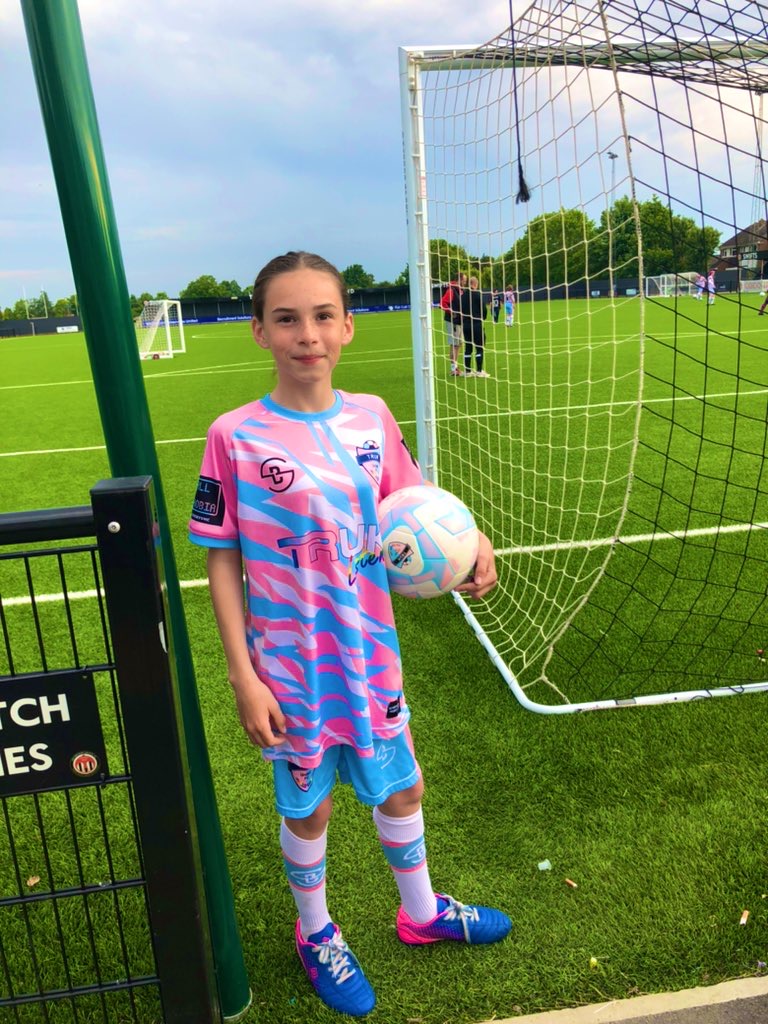
“It comes down to everything. If one person was against LGBTQ+ people and everyone else supported it, that limits what I could do.
“Sports and football clubs don’t seem to get too deep into topics like that, but it does depend on the club. Some clubs would act on issues immediately, some would take their time with it, and others would leave it how it is.
“Before I join, I would like to see a training session from everyone, the youth team and the main team. I would want to see how the manager reacts, and how the fans react to the team.
“A lot of passionate fans can take it too far with the language they use sometimes. They might use racial slurs against people with a different skin tone or from different countries, and treat them differently just because of that.”
While accessing sport is a source of frustration, so far in 2024 Emily has been trying to look at life more positively.
Every day on social media, Emily and her mum post about #TransJoy, showcasing something – no matter how small – that made Emily smile during the day to provide some light in the darkness.

Their hope is to inspire other LGBTQ+ people, of any age, to celebrate their lives when so much of what can be seen publicly is doom and gloom.
“There have been a lot of trans young people who have lost their lives,” Emily’s mum Emma explained.
“Mental health is something that Emily has always struggled with, and sometimes for many different reasons, it’s difficult to find even the tiniest bit of joy in the day.
“I found that in managing Emily’s mental health, it can sometimes be the smallest thing that can turn the day around.
“We might just spend half an hour doing our nails, or cuddling with the pets, or watching our favourite show, just to show that the little things count and that you can turn your day around and find just a little bit of joy even in the darkest of days.
“I would definitely say that managing Emily’s mental health has been difficult at times, so it’s something I have always been aware of and had to deal with to find ways around.
“We just thought that sharing the little things that bring Emily joy in the day might encourage one or two people to go ‘you know what, I’m going to find a little bit of something in my day to turn things around’.
“There are so many LGBTQ+ young people at the moment who are really, really struggling. Some people don’t have anybody they can turn to for support, and they have to take their mental health into their own hands. Hopefully they can find a little bit of something to get them through the day and take one day at a time.
“It’s important that they thrive and not think about tomorrow, and just keep getting through, because you will find your people and it will get better. Even if #TransJoy inspires one or two people, that would be everything.”
Emily added: “With me and mental health, I think it’s really important to find anything, the smallest of things, that makes you happy. If my mum notices that there’s something that’s cheering me up on a bad day, or if we’re having a particularly good day, we post it online.
“I’d like to see other people do it too. I want to spread it to other people to use the same idea.
“I thought we would have had some feedback, but not yet. Maybe some people are a bit reluctant to reach out. If there are younger trans people or older trans people, of any age, I think they should do something similar because mental health is really important for everyone.”
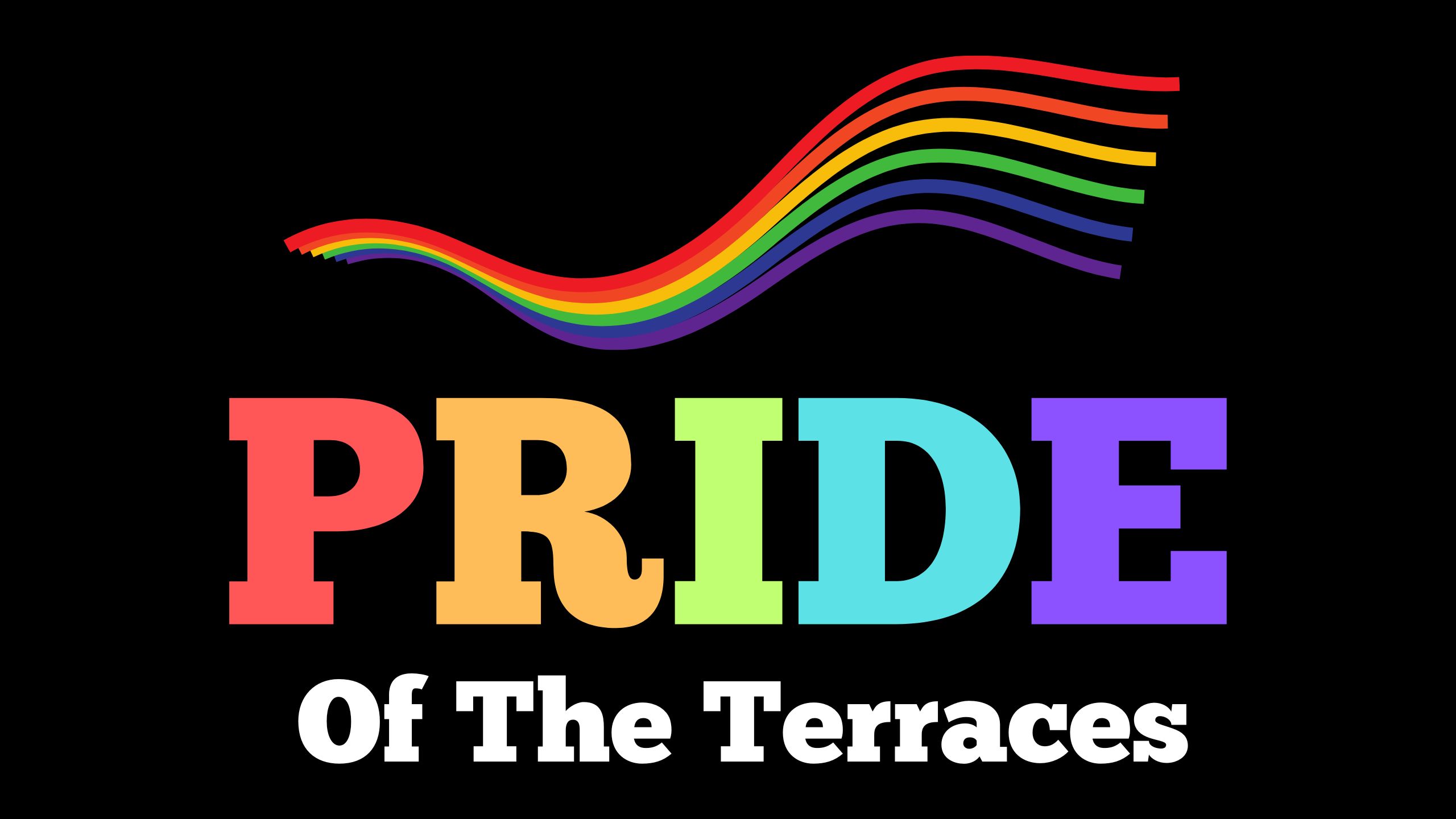
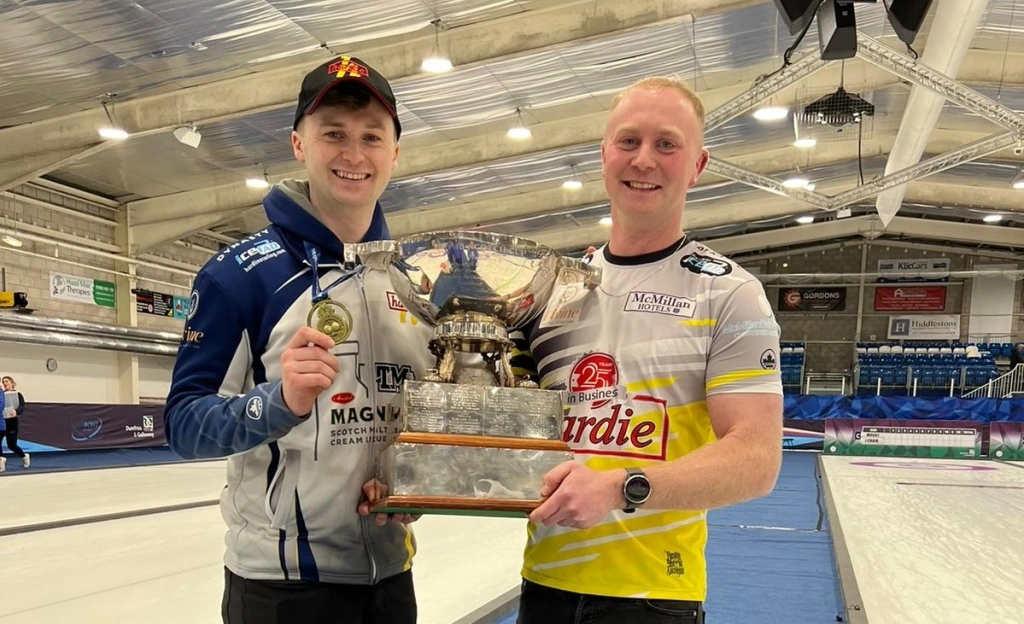
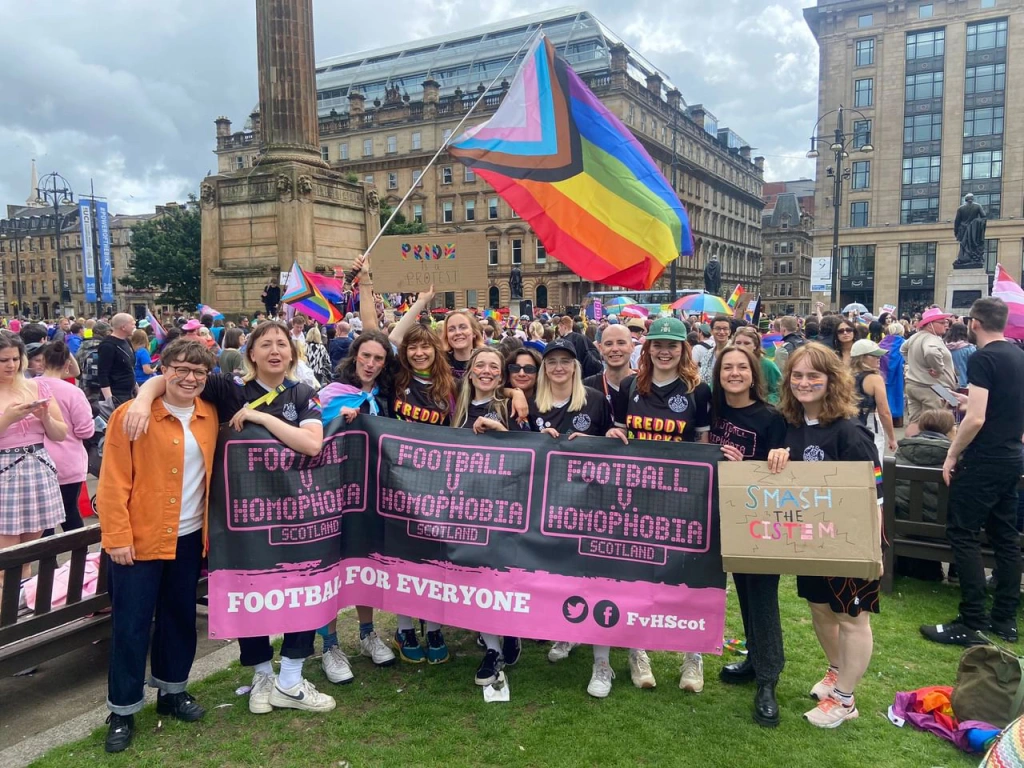
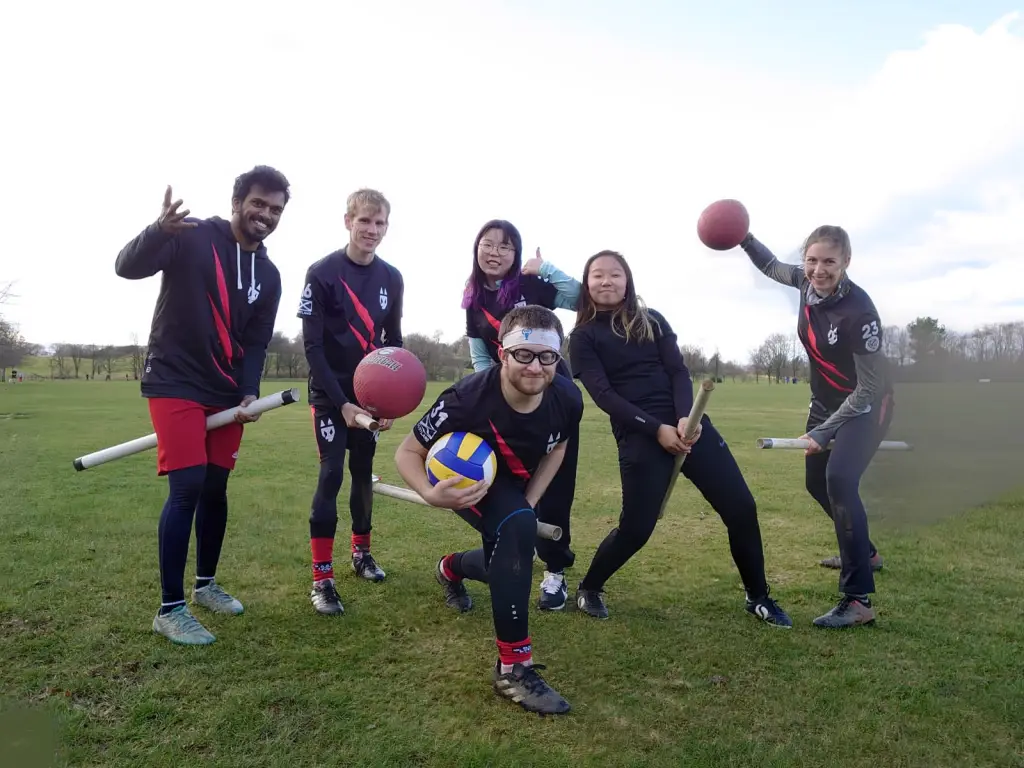

Leave a comment